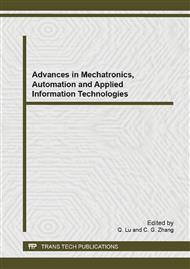p.1801
p.1805
p.1809
p.1813
p.1818
p.1826
p.1830
p.1836
p.1840
Hot Issues Detection on Weibo Based on Social Network Analysis
Abstract:
Weibo is a leading twitter-like microblog service in China, acting as the key barometer of social changes. This paper proposes an innovative model, which automatically detects hot issues on Weibo based on social network analysis instead of search-based approaches. Three stages are consecutively collaborated to discover the hot issues and each issue was presented by a group of distinguished keywords as outcome of the model, i.e., firstly self-revised opinion leaders list construction, secondly keywords selection according to a weighting criterion, and finally keyword co-occurrence network building and event detection through community detection on the network.
Info:
Periodical:
Pages:
1818-1825
Citation:
Online since:
November 2013
Authors:
Price:
Сopyright:
© 2014 Trans Tech Publications Ltd. All Rights Reserved
Share:
Citation:


